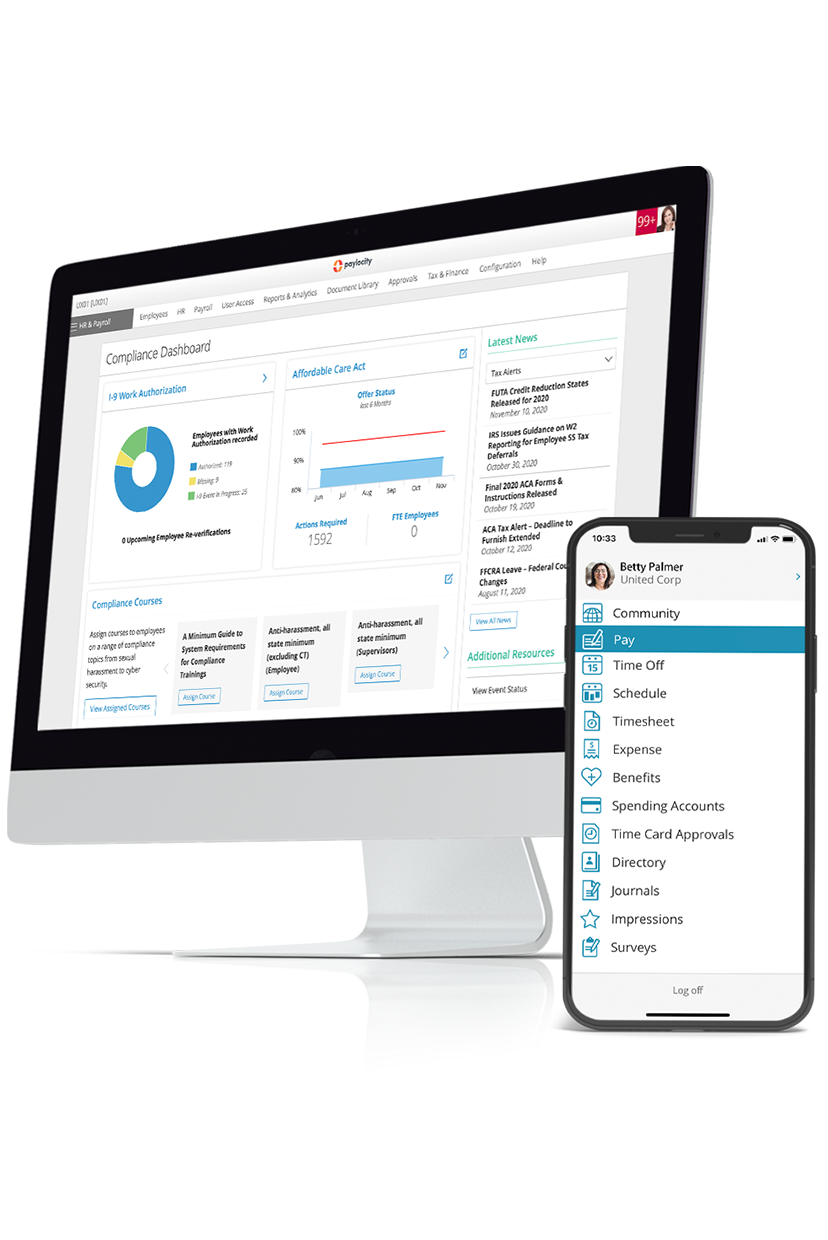resources
10 HR Skills and Competencies to Supercharge Your Team
September 07, 2023

In a lot of ways, HR skills are like superpowers. They’re used to help people, it takes a special kind of person to wield them, and they can be impressive to see in action.
With today’s employee expectations evolving, the list of HR skills you need is growing and adapting to trends and technology. It’s not enough to be Captain America or Black Widow anymore, you need to be the entire Avengers team!
But how do you keep track of everything and maintain an adequate balance of hard and soft skills amongst your HR team?
Truthfully, every business operates differently, and separate roles necessitate specific skills. However, everyone who works in HR should possess and improve certain core competencies.
What are HR Skills?
HR competencies are the essential skills and knowledge an HR professional needs to be successful in their role, including both technical abilities and behavioral skills. Core competencies are often broader skillsets that can then be distilled down into more actionable and specific requirements tailored to a role or organization.
Defining HR core competencies, and the subsequent related behaviors, can help you design an HR competency model or framework. Organizations can then use this framework to assess strengths and areas of improvement for HR team members and set the foundation for upskilling and reskilling.
Understanding the critical skills and competencies for HR mastery is more imperative than ever. In the last few years, organizations have seen that without employee engagement and retention strategies, success markers stagnate, which puts HR front and center of organizational success. An efficient and motivated workforce keeps organizations agile, and HR professionals are uniquely qualified to play the role of facilitator.
“In the world we live in, the environment is changing so quickly that the things that we have been historically doing right are now the wrong things, but we keep trying to do what we once did well,” says Dr. David Ulrich, HR speaker, author, and co-founder of the RBL Group. “Now is the time for HR to step up and really reinvent ourselves.”
10 HR Core Competencies Every Professional Needs in their Toolbox
In HR, we know it’s all about people. Specifically, it’s about getting the right people in the right positions.
So, what kind of people and skills are best suited for working in HR?
1. Interpersonal Skills
Also known as “people skills”, interpersonal competencies are a set of HR soft skills that’re crucial to any professional. They involve your ability to communicate, relate, and connect with other people. Interpersonal skills are the only way to keep things human in human resources.
These HR abilities encompasses our natural, innate skills that give us a strong desire to work with people. Of course, it’s not always so simple when working in a professional environment.
Interpersonal expertise encapsulates a broad set of skills spanning communication, nonverbal communication, active listening, empathy, and emotional intelligence.
Communication Skills
Anyone can participate in a conversation (just ask someone from your sales team). But communication isn’t only about chatting with someone. HR communication skills are about achieving mutual understanding.
HR professionals should be able to communicate clearly in both verbal and written correspondence. During a typical day, you may be doing an onboarding presentation, meeting with management, and crafting an open enrollment announcement. That’s a lot to juggle.
You also need strong reading comprehension and writing competence to understand what someone is really saying. You can read between the lines.
In contrast, you will want to keep your written communication clear and concise. Leave no room for interpretation or hidden meaning.
Nonverbal Communication
In addition to the obvious, HR pros need to have a firm grasp of body language and other forms of nonverbal communication. Understand how to maintain positive or neutral body language. Such skills prove helpful when dealing with tense moments such as performance reviews and conflict resolutions.
HR personnel can glean information from nonverbal cues during meetings or interviews that help them make better workforce decisions.
Active Listening
As an HR professional, you often mediate between the CEO, management, team members, and recruits. You’ll liaise on policies, disputes, or training strategies. The only way to keep track of so much diverse information is to maintain active listening skills:
- You commit your full attention to whomever is speaking to you.
- Make eye contact with the speaker.
- Ask questions to clarify any unclear points or potential misunderstandings.
- Repeat information back to the speaker to verify you understand.
Empathy
Listening is the first step toward understanding people and one of the most vital skills needed for HR. Sometimes conversations are uncomfortable, such as layoff discussions, exit interviews, and disciplinary meetings. A skilled HR pro must fully listen to the other parties with compassion and understanding, even in the most tense meetings.
Empathy is one of the core skills for HR professionals to mediate between employees. Empathizing can help you put yourself in the other person’s shoes to grasp how and why they feel as they do. It’ll allow you to build trust and form connections with team members.
Emotional Intelligence
Emotional intelligence, or emotional quotient (EQ), encompasses a broader skill set of recognizing and managing our own emotions while understanding the emotions of others.
In HR, we first need to have a good level of self-awareness before we can begin to read others, and EQ helps with regulating our emotions. This is crucial to handling private interactions with team members involving difficult situations like a probation review.
There are many circumstances in which team members will be angry, sad, anxious, or generally upset. Competent HR professionals can recognize those emotions and empathize with employees.
2. Conflict Management
As mentioned above, conflict management is a key aspect of HRM. Resolving disputes requires core soft skills such as active listening. However, it takes additional expertise to navigate conflicts that arise at work.
Handling a dispute relies on your ability to remain neutral and avoid making things personal, even if you’re being personally attacked.
In other words, you need to keep a cool head, navigate proceedings according to company protocol, and handle every situation as gracefully as possible.
During any dispute or conflict, HR professionals with the strong conflict resolution abilities can calm any situation. Level-headed discussions foster dialogue and steer conversations toward a rapid resolution.
3. Organizational Skills
The basic roles in HR span from strategic workforce planning to training to benefits administration. Job tasks can involve reviews, meetings, emails, forecasts, financial reports, and legal document management.
This wealth of HR responsibilities can quickly distract and confuse those who operate haphazardly. To succeed as a professional, you need great organizational skills, including:
- Time management: Prioritizing by time sensitivity — employment contracts and payroll are often more pressing than video chat and team messaging credentials.
- Calendar management: Planning an efficient schedule that can squeeze in minor tasks between major ones. You also need to arrange meetings, interviews, and events.
- Records management: Handling physical and digital HR documents. You need to be competent in systems that allow for quick location and retrieval of employee records.
Whether it’s managing schedules, inboxes, calendars, or workflows, being able to prioritize and work through checklists is a key to HR success. Many organizations use HRIS software to help alleviate some administrative burden and automate parts of the HR process.
4. Teaching Mindset
Among the most crucial HR professional competencies are educational and mentoring abilities. You should be able to guide new hires through the onboarding process and run teams through conduct or harassment training with other HR policies.
Training and development of HR skills rely on patience, effective communication, and a knowledge or understanding of cultural sensitivity. This will help you adjust training and coaching to meet the context and needs of every individual.
The savvy HR pro will make use of onboarding and training software to take care of some of the more monotonous aspects of these functions. But it still pays to have a solid grasp of effective onboarding and employee development techniques so you can make the most of this HR tech.
5. Flexible Problem-Solving
Most jobs rely on some form of problem-solving, but HR professionals regularly encounter numerous fires that need to be put out at the drop of a hat — often at the same time. Issues can arise unexpectedly and at the most inconvenient times.
In HRM, we pick the most practical solution in each situation. In this case, you may not choose the theoretical “best” option, but one based on the time, money, and legal considerations involved.
This means two similar problems may have different solutions. There isn’t always a template to follow. Each issue is as unique as the individuals involved.
6. Analytical Skills
A massive 92% of HR professionals plan to use people analytics, which is the data you gather from new hires, surveys, feedback forms, and performance reviews. People analytics takes that data and looks for patterns to improve business outcomes.
Today, businesses use HR platforms to store much, if not all, of their personnel data in the cloud. This makes it easier for you to store, manage, and retrieve important documents.
HR solutions also let you connect your employee data to other business intelligence tools. Platform integrations with areas such as accounting and customer relationship management mean you have one central hub for reporting and analysis.
HR analytics guide policy creation. Metric tracking helps you better align HR with business goals, including streamlining the recruitment process to get the right people.
To succeed in HR, you want to be data literate and understand data sources and key HR metrics, such as:
- Time to hire
- Cost per hire
- Revenue per employee
- Turnover
- Absenteeism
- Time since last promotion
A sophisticated HR platform can make these calculations, and even provide tailored recommendations to help you action on them. But it’s still important to have a solid data literacy to help you understand your workforce and explain the data to leadership.
7. Ethical Conduct
HR pros have access to sensitive corporate information, such as budgets, employee pay, and contract terms. Additionally, you’ll know about employee information that could quickly become gossip or affect the work environment.
As such, discretion and confidentiality are key competencies in HR. They’ll help you adhere to company policies and legal compliance while building trust with the people you serve daily.
8. Adaptability to Change
In HR, we often have the best-laid plans. However, everything is in constant motion. Business objectives evolve, local regulations change, and markets change with the trends. What this means is that HR professionals need to adapt to moving targets.
Having a flexible mindset will help you adapt with organizational restructuring, filling holes in succession management, adopting new technology, and updating policies. Together, these are sometimes referred to as change management.
Part of succeeding in a flexible HR environment is understanding the big picture. Although policy and strategy are fluid, the end product should align with the needs of the business.
For example, you may find you need to invest more in employee career path development to reduce the cost per hire. Or, you may need to dissect feedback from your exit interviews to address a high turnover rate.
9. Curiosity and Continuous Learning
HR best practices are constantly improving, and the ability to continuously learn via research is invaluable. To keep up, HR pros must stay curious and up to date on the latest and greatest HR trends.
Thanks to AI and analytics, organizations are gaining better insights into what makes their employees tick. Similarly, HR professionals who want to stay on top of their game must also keep an eye on industry news, trends, and shifting government regulations.
Want to stay ahead of the curve?
Sign up for Paylocity's newsletter to receive the latest HR news and expert resources delivered right to your inbox! You'll be getting tips, tricks, and best practices that'll have you feeling like an HR superhero.
10. Technical Skills
HR technical skills are based on competence with HR technologies. In years past, HR professionals could get by with a familiarity of Microsoft Word and Excel, but today much more powerful HR tools are available.
Many organizations leverage advanced human resources information systems that enhance and scale the HR function. These platforms touch every part of the employee experience, from recruiting tools to manage your hiring pipeline, to automated onboarding workflows, all the way to AI-powered analytics dashboards.
HR pros need the technical know-how to make the most of these powerful tools and the insights they provide. Thankfully, the right HR and Payroll solution will have a complete library of documentation and expert service team so you can level-up your platform expertise.
How to Develop HR Skills
Knowing the essential core competencies that make a good HR professional is great, but how can teams improve their skills and apply them to their day-to-day life?
Just as those in HR help the workforce through training and talent development, HR professionals need to take the same approach to their own growth and invest in themselves.
Formal Training
Consider formal qualifications as part of your continuous learning. This includes pursuing a Bachelor’s or Master’s degree in Human Resources Management or a related field. You can also boost your knowledge by qualifying as a SHRM Certified Professional.
Make the most out of your organization’s training initiatives. And if they don’t have any, we know someone in HR who can make a compelling case for employee training — you, of course!
Online Courses
If your organization uses an LMS or microlearning courses, spend some time upskilling. It doesn’t even need to be HR-specific. Many of the soft skills you need for building HR expertise are required for other roles in the business, such as leadership and team-building abilities. Other places to look online include Coursera and LinkedIn Learning.
Shadowing and Mentorships
You’ll likely set up shadowing and coaching sessions for employees in other departments, but don’t forget you can get similar benefits from HR mentors and advisors.
Develop IT Skills
You may have the baseline of hard skills for HR technologies, but when looking for areas to improve, this is always a good choice. Improving your familiarity with HRIS will boost your career development. Take a few training courses or touch base with your HRIS service team to develop these skills.
As you master more technology you’ll be able to design better, more efficient workflows and coax more insights from HR analytics tools to make better-informed decisions.
Use a Professional Networking Site
Building a complete profile on sites like LinkedIn is an easy way to water the seeds of your career. Each time you post content, add a new contact, or make a comment it helps you interact with your peers.
Growing a network that includes HR professionals outside your organization can only help you develop into a well-rounded human resources expert.
Create Opportunities to Connect
With so much technology at your fingertips and flexible working, it’s tempting to strap yourself to your laptop. Always remember that your job is about managing people. So make sure you’re intentional about fostering real connections with your workforce.
This might include organizing an after-work team dinner, joining an employee community group, or celebrating personal and professional wins.
Being present will help build trust and facilitate transparency. You’ll get more authentic, open feedback from employees and a chance to witness company culture. You never know from whom or where you might get inspiration.
Master These HR Skills and Become an HR Superhero
If you’ve made it this far, you may be feeling overwhelmed. But building your HR resume doesn’t have to be painful. Many of the must-have HR manager skills are highly related to each other.
The condensed version of the story is about developing interpersonal skills, communication abilities, technology familiarity, and grasping HR analytics data.
Businesses are looking for HR professionals to join them on a journey of evolving human capital. The right HR solution is an invaluable partner in helping you and your organization take those steps.
Paylocity is committed to helping you and your organization thrive through the power of HR technology. To learn more about our HR and payroll software, request a demo today.

HR Tools Built With Employees in Mind
Recruit and retain talent by shaping an environment that makes employees feel valued and engaged. With HR tools built with employees in mind, you can equip your employees to be more self-sufficient and gain valuable insights into what you can automate and where you can strategically focus your resources. You can deliver the experience your employees need to find meaning in their work, and you'll continue improving efficiency.


